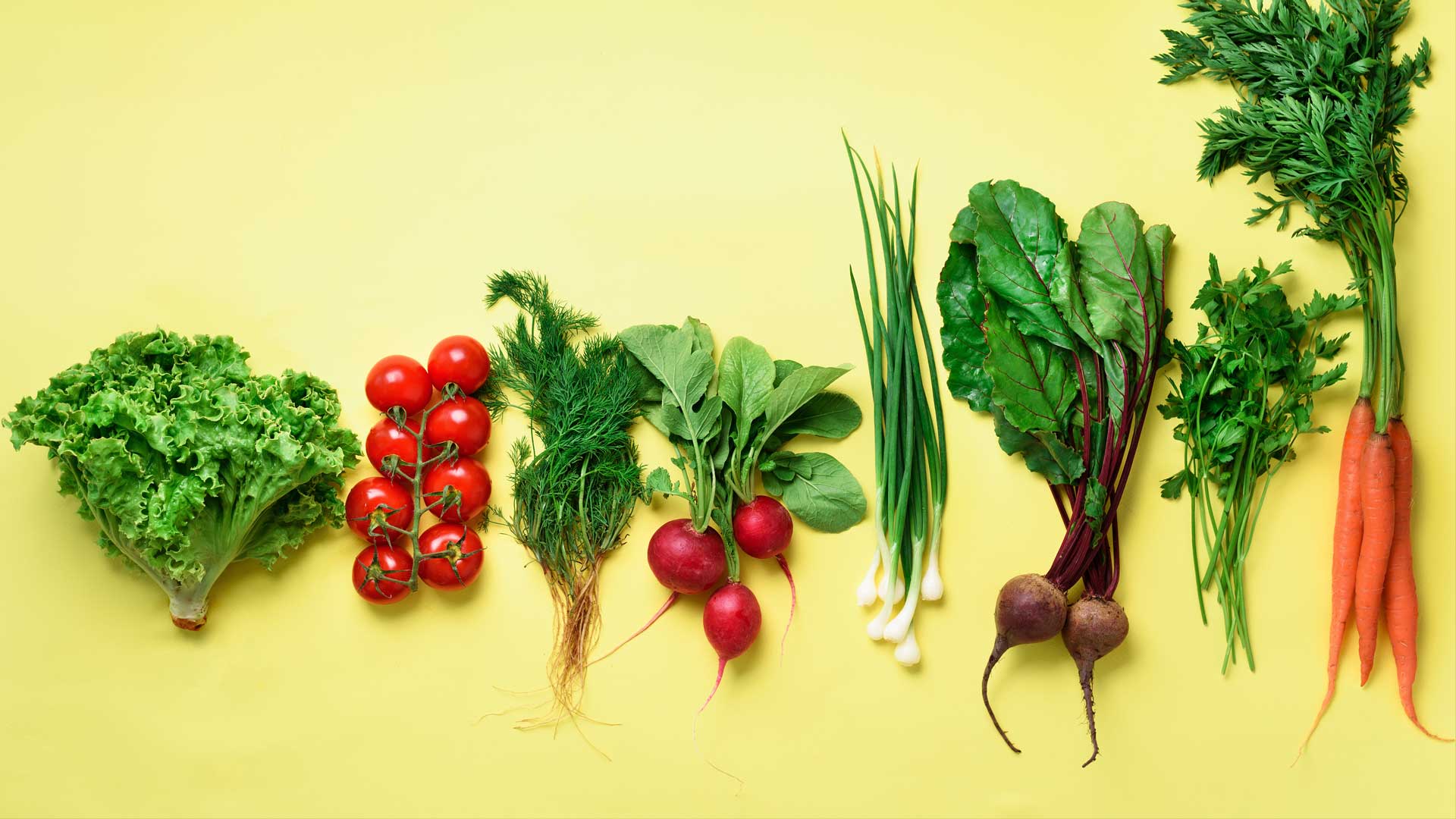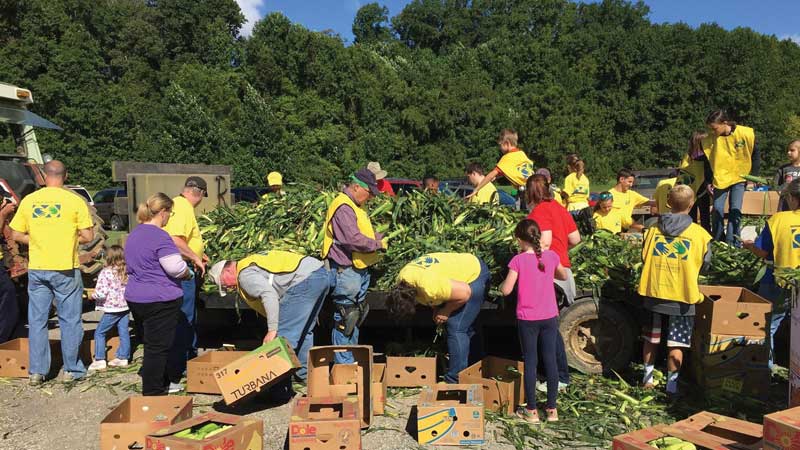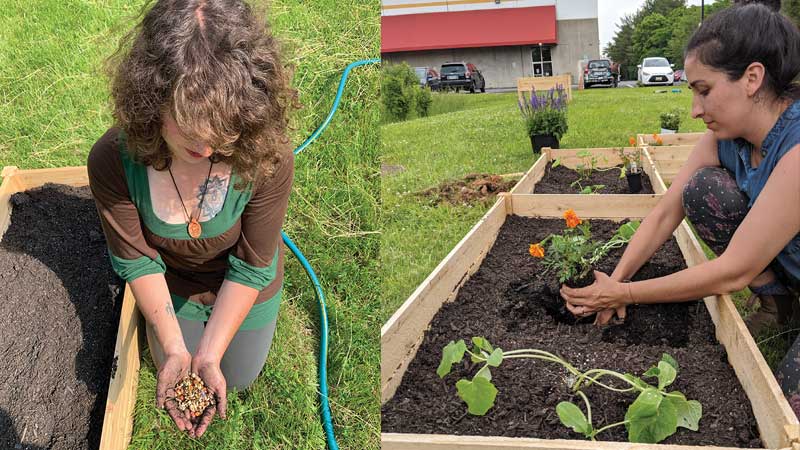Maryland Farms: Plotting a Course for Food Security

Plotting a Course for Food Security
Last year, your support helped us get more than 9 million pounds of fresh produce from farms, gardens, and greenhouses onto the tables Marylanders all across the state — that’s enough to fill 500 tractor trailers — but we need to do more.
Through the next five years of our strategic plan, we aim to increase not only the amount of food that we distribute but the nutritional value of that food. And it’s going to take all of us to get there – from our state’s large-scale farms in rural areas to inner-city gardens, and even our own backyards.
Farming4Hunger, Traditional Agriculture in Southern Maryland
Since 2014, Farming4Hunger has helped us get more than 3.5 million pounds of produce into the hands of hungry Marylanders. Bernie Fowler founded Farming4Hunger during the great recession when he was forced to close his construction business and lay off 14 employees.
It was a low point in his life, but during a volunteer shift at an MFB Pantry on the Go event, Fowler realized he had a unique opportunity.
“It was very emotional to serve some of my ex-employees in that church parking lot — I felt responsible for them as the owner of the company. I realized that hunger comes in a lot of different ways, and food could be a vessel for rebuilding my community.”
Fowler initially started growing food in his own backyard in 2011 with one crop.
“I thought, if someone was hungry, what one thing could they make a meal from? So, I started by planting potatoes.”
That initial yield was very successful, but Fowler had bigger aspirations. Today, Farming4Hunger occupies 276 acres and supplies 10 different fruits and vegetables for MFB programs.
Farming4Hunger is looking to help bring urban neighborhoods together through community gardens statewide, places where people can gather, and work together toward a common goal.

Great Kids Farm, An Urban Twist on Farming
In Catonsville, the 33-acre Great Kids Farm (GKF) takes a different approach to fighting hunger. Combining food and education, GKF regularly welcomes Baltimore City elementary and middle school children who meet the animals, taste the produce, and work together to strengthen their understanding of nutrition, agriculture, and natural resources.
The Maryland Food Bank’s FoodWorks Program plays a key role in the farm’s success. MFB provides hundreds of pounds of food scraps that result from FoodWorks students creating meals for hungry Marylanders for use as compost at the farm.
“The Maryland Food Bank needs to dispose of food scraps and Great Kids Farm needs to provide nutrients to our plants. This partnership is a very easy and effective solution to both problems,” said James Koval, GKF’s farm manager.
Those plants provide an important learning opportunity for not only the 1 in 4 Baltimore City children who live in a food desert but their classmates as well.
“Equity is very important here. Children who live in the city should still be able to see and experience green spaces and farming.”
During the 2017-18 school year, half of Baltimore City schools served their students produce from Great Kids Farm.
MFB board member Keith Shapiro is a fan. “It is an honor to work with both the Maryland Food Bank and Great Kids Farm. The expanding partnership between the two organizations is a great example of how we can make local resources even more effective for Marylanders by bringing them together,” he said.
Look for this relationship to grow deeper in the future as we explore ways to get their produce to more students through the School Pantry Program.
“This is the first chance that many of these kids have to connect food to its source,” said Rosenthal.
Many Hands, One Goal: The Power of Community Gardens
Community gardens are a great way to get involved in both fighting hunger and beautifying local communities.
“Access to fresh food is a human right, and there are marginalized communities in Maryland that are cut off from food in general, but especially healthy food. I’m here to make it more accessible through community gardens,” Morgan Thapa explained.

Thapa and Katerina Chaconas are AmeriCorps VISTA volunteers, helping further the Maryland Food Bank’s community garden program.
The first community garden, located on the grounds of our Baltimore facility, is a living classroom for partner education, where they’ll learn how to provide new solutions to hunger in their service area.
“I’m really excited about this opportunity for our partners to come to the food bank and learn about how sustainable community gardens can make a big impact in their neighborhoods,” said Jessica Corcelius, director of partner services.
HEY FARMERS
You may be able to receive annual tax credits worth up to $5,000 for donating to qualified organizations. Certified Organic produce is eligible for credits worth 75 percent of the value, while conventional is eligible for 50 percent.
Contact Farm to Food Bank Coordinator Amy Cawley at acawley@mdfoodbank.org to learn more!
Backyard Gardeners: IT’S SAFE TO DONATE!
Sometimes Mother Nature can throw even the most experienced backyard gardener a curveball – the tomato plant that unexpectedly triples in size, or the cucumber vines that continue to flower long after you’ve pickled what you thought was the last batch.
What do you do with all that extra produce?
Donate it to a nearby food pantry!
Signed by President Clinton in 1996, the Bill Emerson Good Samaritan Food Donation Act encourages the donation of food to nonprofits and protects the donor from any civil or criminal liability.
You can reduce food waste while helping expand access to fresh fruits and vegetables for your hungry neighbors.
Get updates on our progress in the fight against hunger
Want to see how your involvement directly impacts the well-being of your neighbors in need? Get the latest news sent to your inbox.






